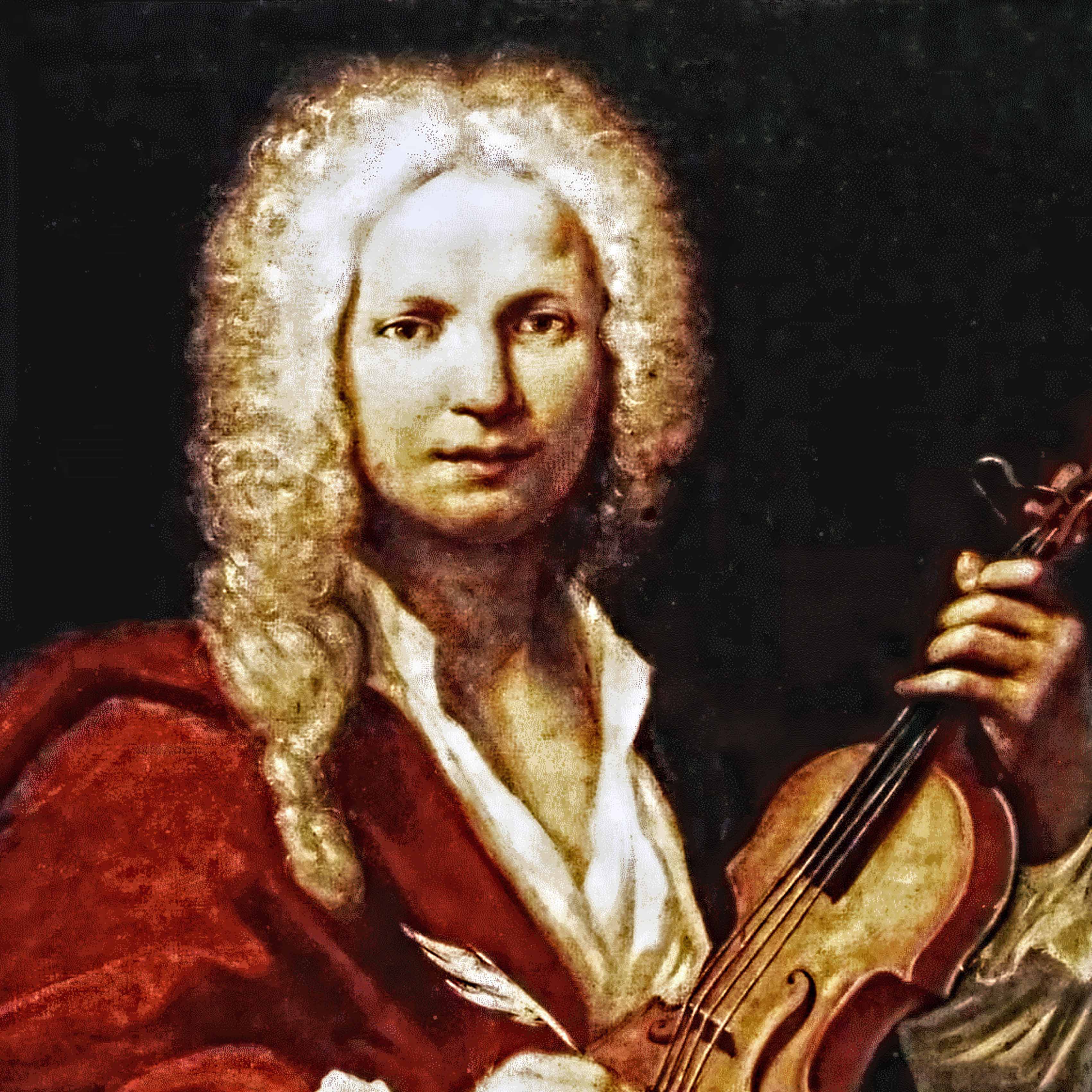
Vivaldi
Born: 1678
Died: 1741
Antonio Vivaldi
Biography
Even in the mid-20th century, Vivaldi’s reputation as a composer was so small that not even the exact date of his birth or the place and date of his death had been established; his music was very rarely played in the 19th century. Now he’s considered to be one of the most important figures of the Baroque era. He’s certainly the most popular.
He was born in Venice when the city, though long past the height of its mercantile power, was the musical capital of Europe. His father was a violinist at San Marco and Vivaldi inherited his gift for the instrument, as well as his red hair (hence his nickname ‘the Red Priest’). When he was 15 he began training for the priesthood; but no sooner had he been ordained in 1703 than he was given a dispensation from saying Mass. Vivaldi was a lifelong asthmatic and complained of chest pains during services. The Church remained a useful backcloth for the remainder of his life but it seems that his priestly duties were never taken terribly seriously.
What he took only slightly more seriously was his position as maestro di violino (and later superintendent) of the Conservatorio dell’Ospedale della Pietà, one of the most famous musical centres in Venice, founded for the care and education of orphan girls. The standard of music-making was so high that many leading figures would perform in concert with the foundlings.
Vivaldi took up the post the year after becoming a priest, and the year after that saw the publication of his first music. The next two decades were incredibly productive: he established himself as one of the foremost violinists and composers in Europe, writing operas (at least one a year between 1713 and 1738, sometimes three or four) and instrumental works, including his two most famous sets of concertos (L’estro armonico, Op 3, and his Op 8 containing The Four Seasons). Between 1718 and 1721, Vivaldi left Venice to work in the service of Prince Philip of Hesse-Darmstadt, governor of Mantua, and here he met Anna Giraud (La Girò, she was called). She took the leading soprano role in many of Vivaldi’s operas and, with her sister Paolina, became Vivaldi’s travelling companion; both were rumoured to be his mistresses (strongly denied by Vivaldi).
During 1728 he had several audiences with the music-loving Emperor Charles VI. It was said that the Emperor spoke more with Vivaldi during the two weeks of their meetings than he had with ministers during the previous two years. Vivaldi dedicated his 12 concertos, La cetra, Op 9, to the Emperor.
The 1730s saw his powers wane. Philip of Hesse-Darmstadt died, the Church authorities took action against Vivaldi because of his lapsed priesthood and association with La Girò, and after that his contract with La Pietà was not renewed. His music began to fall out of favour and he left for Vienna in 1740, possibly with the intention of seeking a post with the Imperial Court. It was not to be. Charles VI died in October 1740 and the once-wealthy Vivaldi, now ill and poverty-stricken, died ignominiously some months later. He was buried in a pauper’s grave near St Stephen’s – like another great composer of half a century later, Mozart.
Twenty-five years after Vivaldi’s death, a certain Count Giacomo Durazzo acquired Vivaldi’s scores from La Pietà. His heirs kept them secret, even stipulating that none of the works in their possession should be published or performed. It was not until the late 1920s, when the terms of the will were overthrown, that the treasures came to light.
Discover Vivaldi’s life and music...
Top 10 Vivaldi recordings
Ten of the best Vivaldi recordings, including Gramophone Award-winners and Editor's Choice albums... Read more
Inside Vivaldi's opera arias
Soprano Roberta Invernizzi talks to Lindsay Kemp about extreme vocal virtuosity... Read more
Exclusive video interview with violinist Rachel Podger
The violinist discusses Vivaldi's L'estro armonico with Gramophone's Editor Martin Cullingford... Read more

Gramophone Digital Club
- Digital Edition
- Digital Archive
- Reviews Database
- Events & Offers
From £9.20 / month
Subscribe
Gramophone Club
- Print Edition
- Digital Edition
- Digital Archive
- Reviews Database
- Events & Offers
From £11.45 / month
Subscribe
If you are a library, university or other organisation that would be interested in an institutional subscription to Gramophone please click here for further information.








